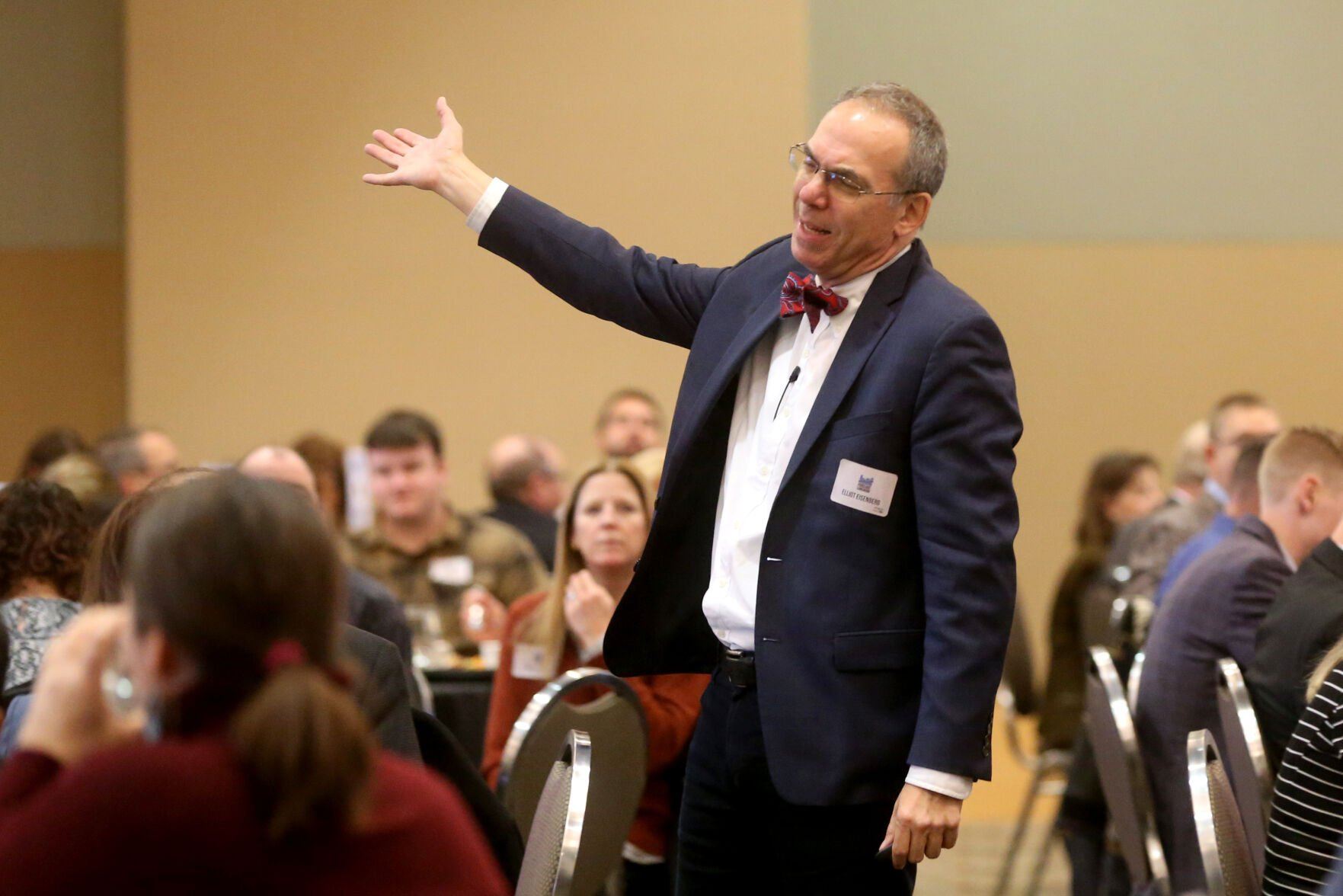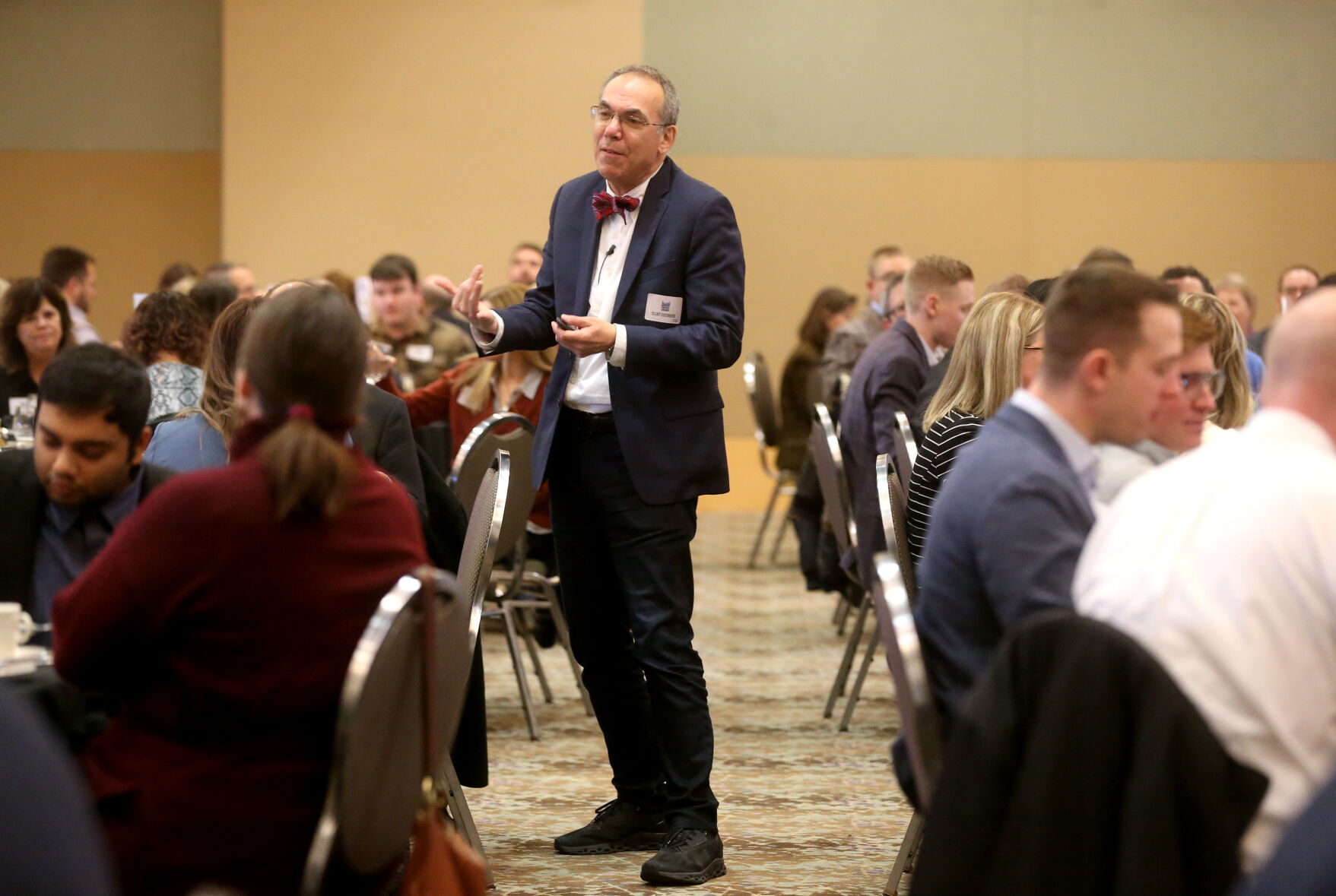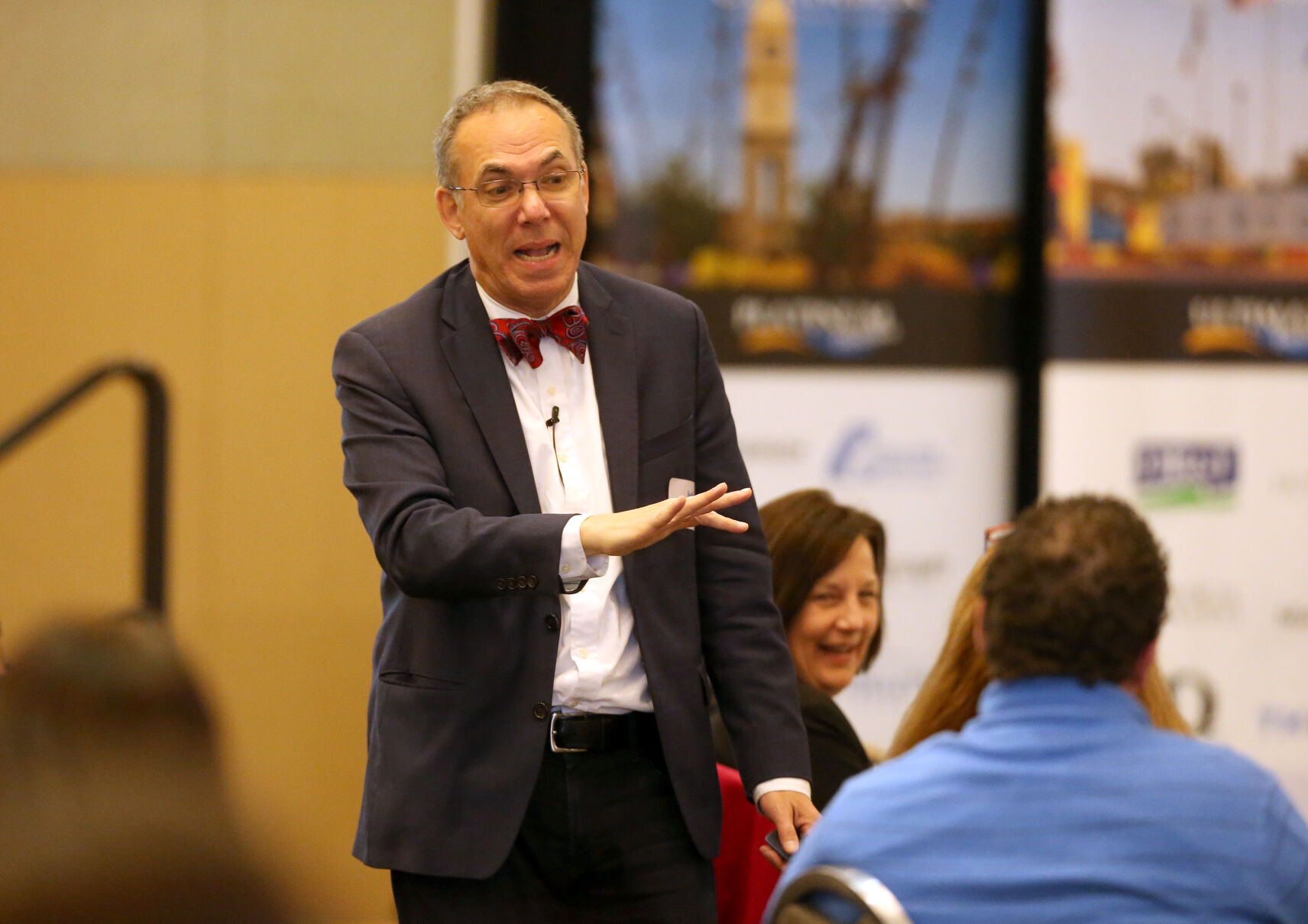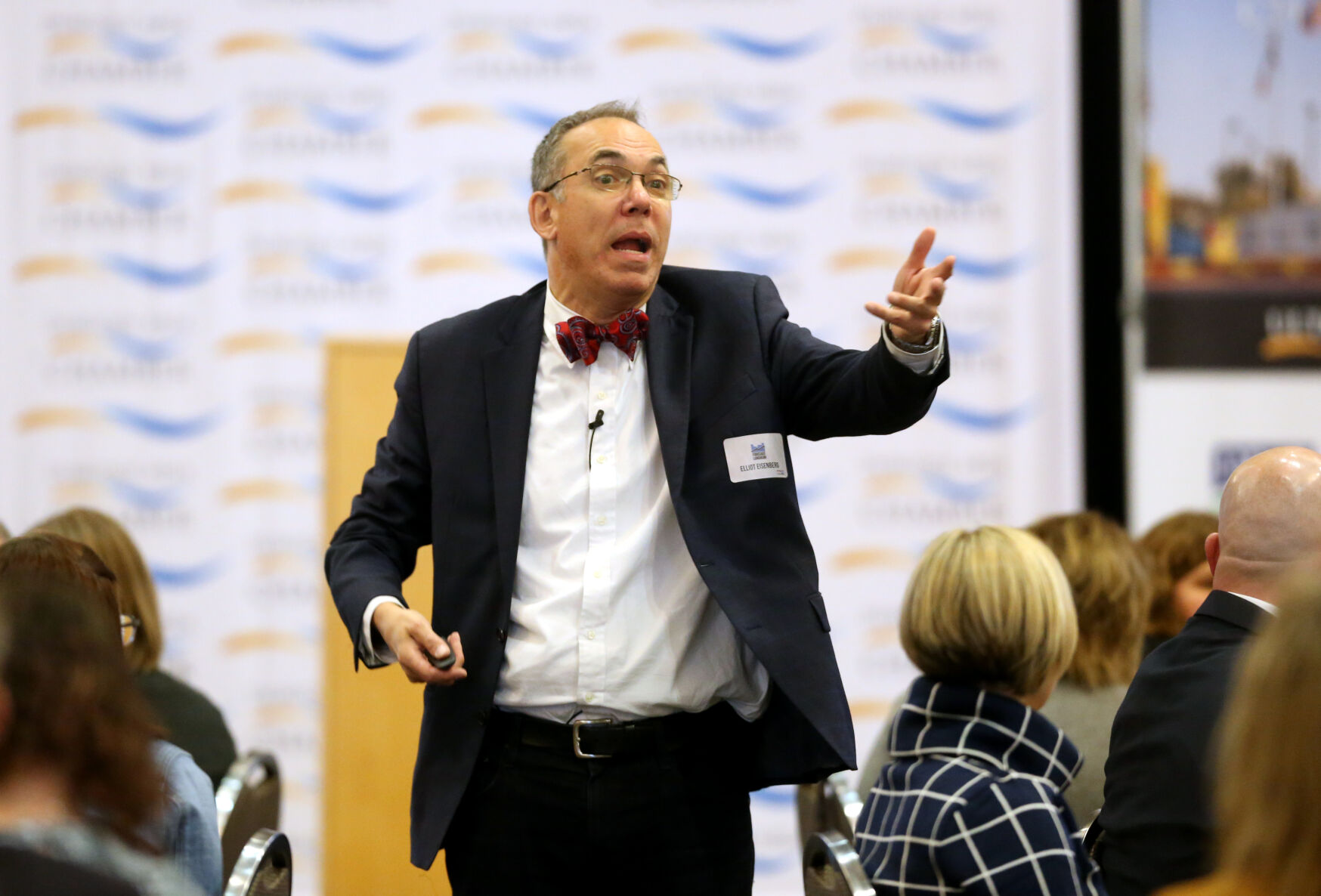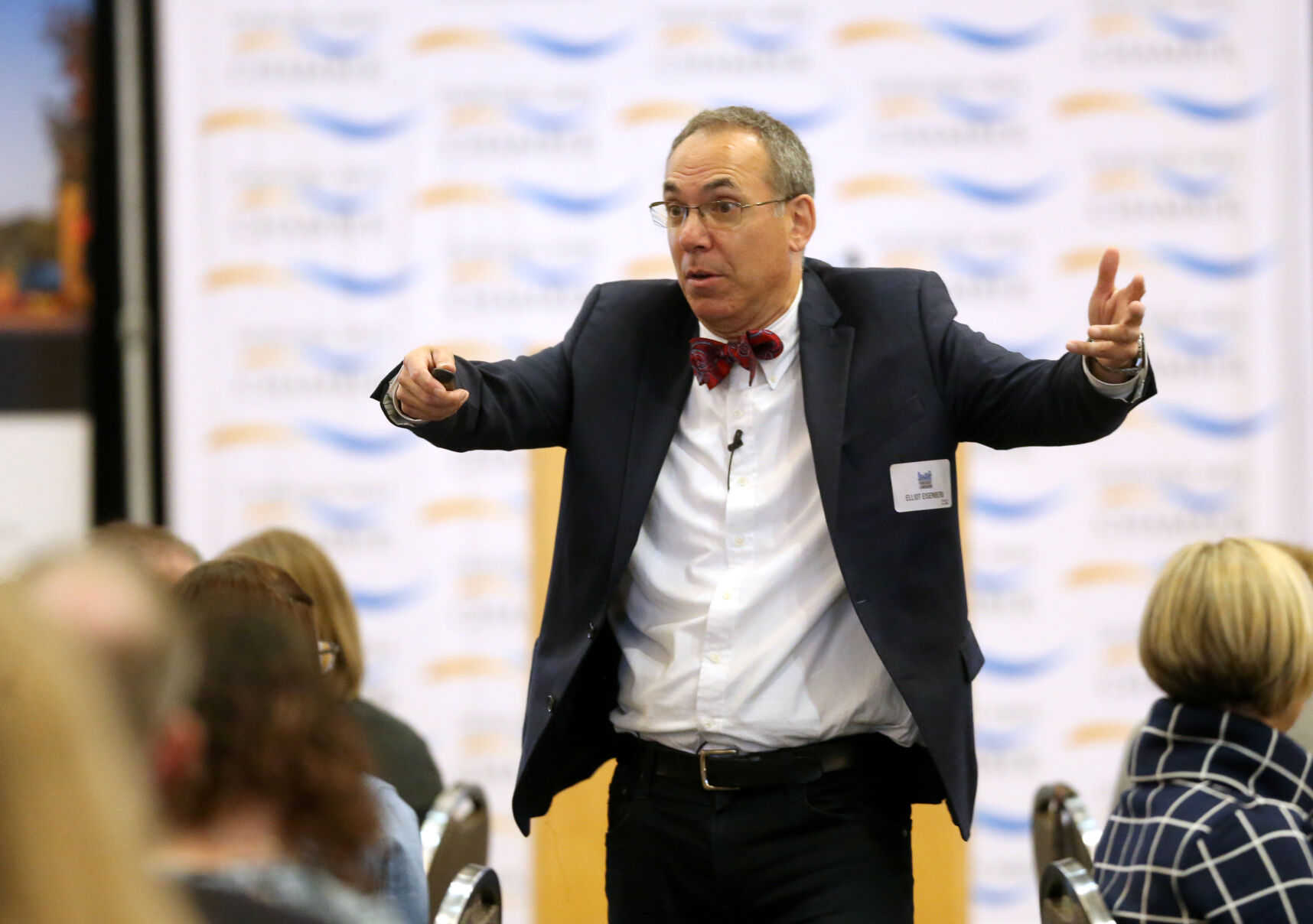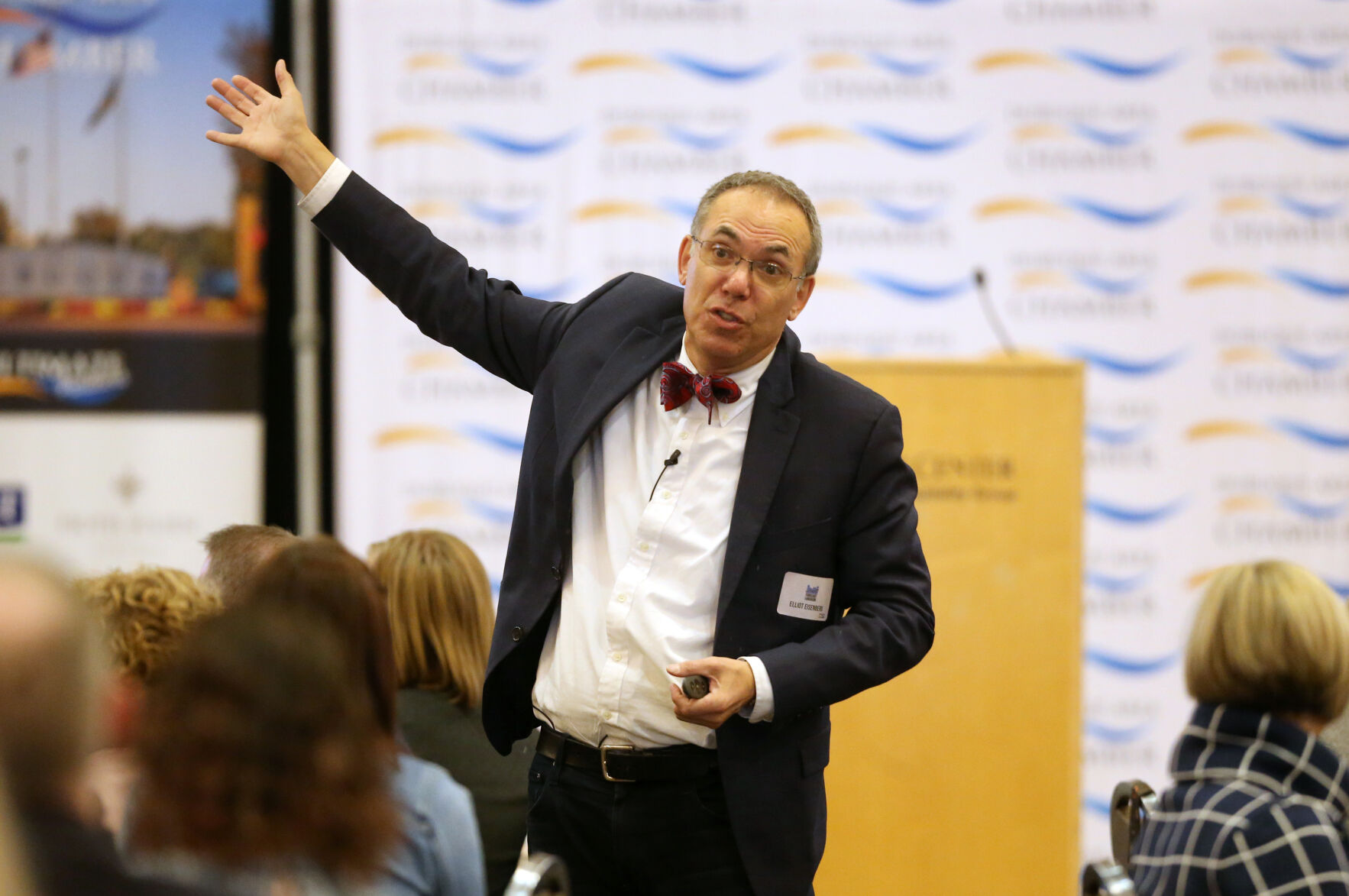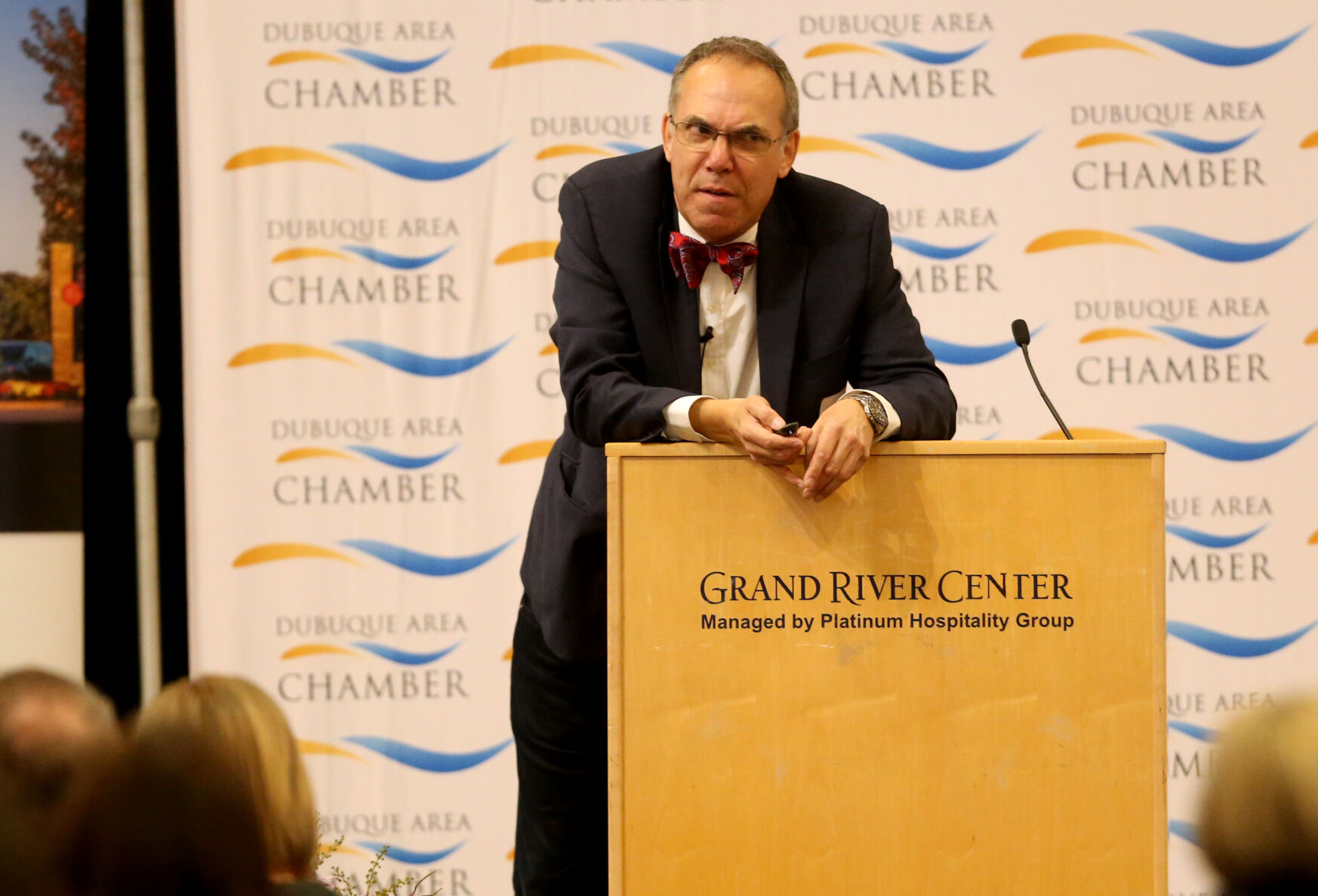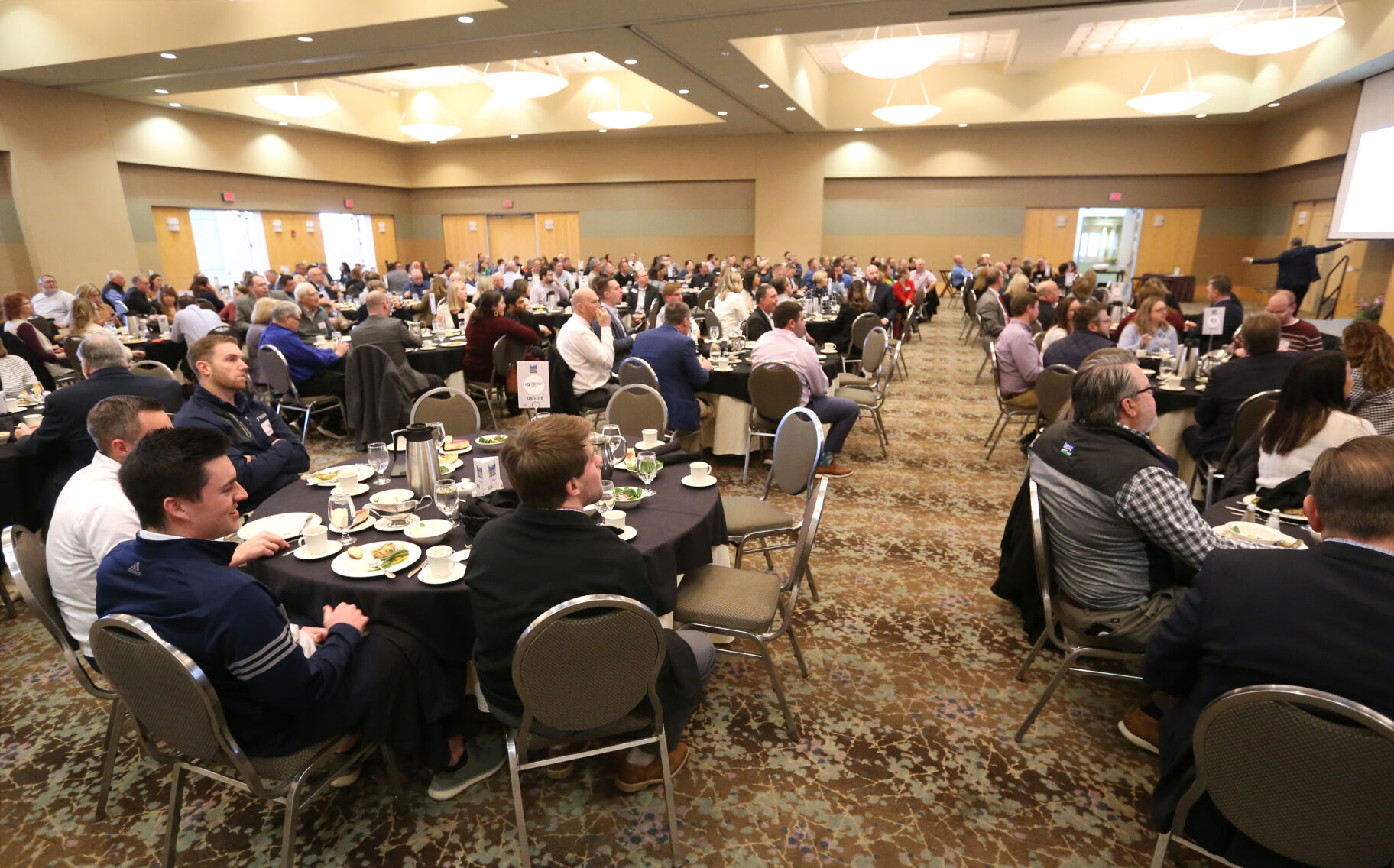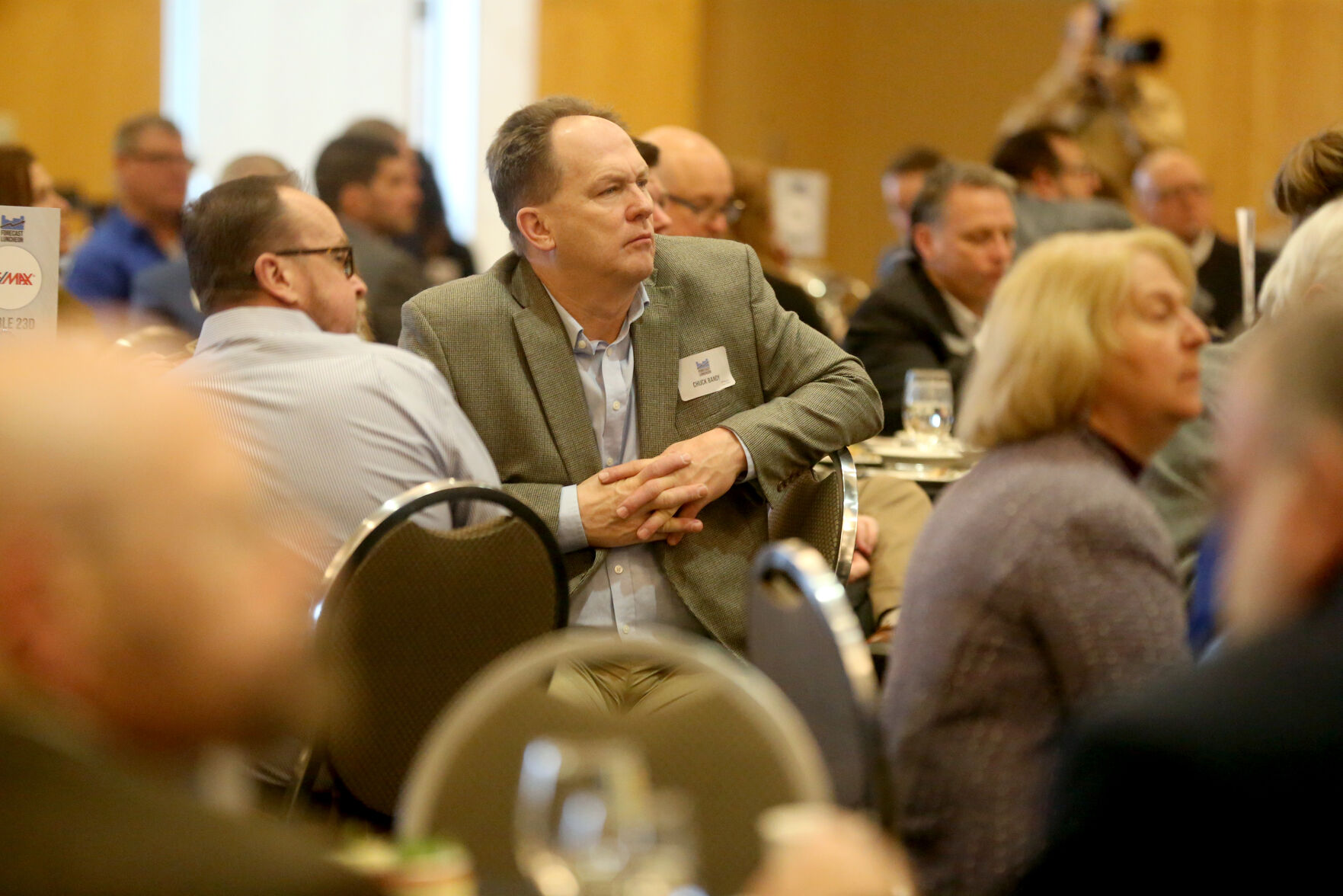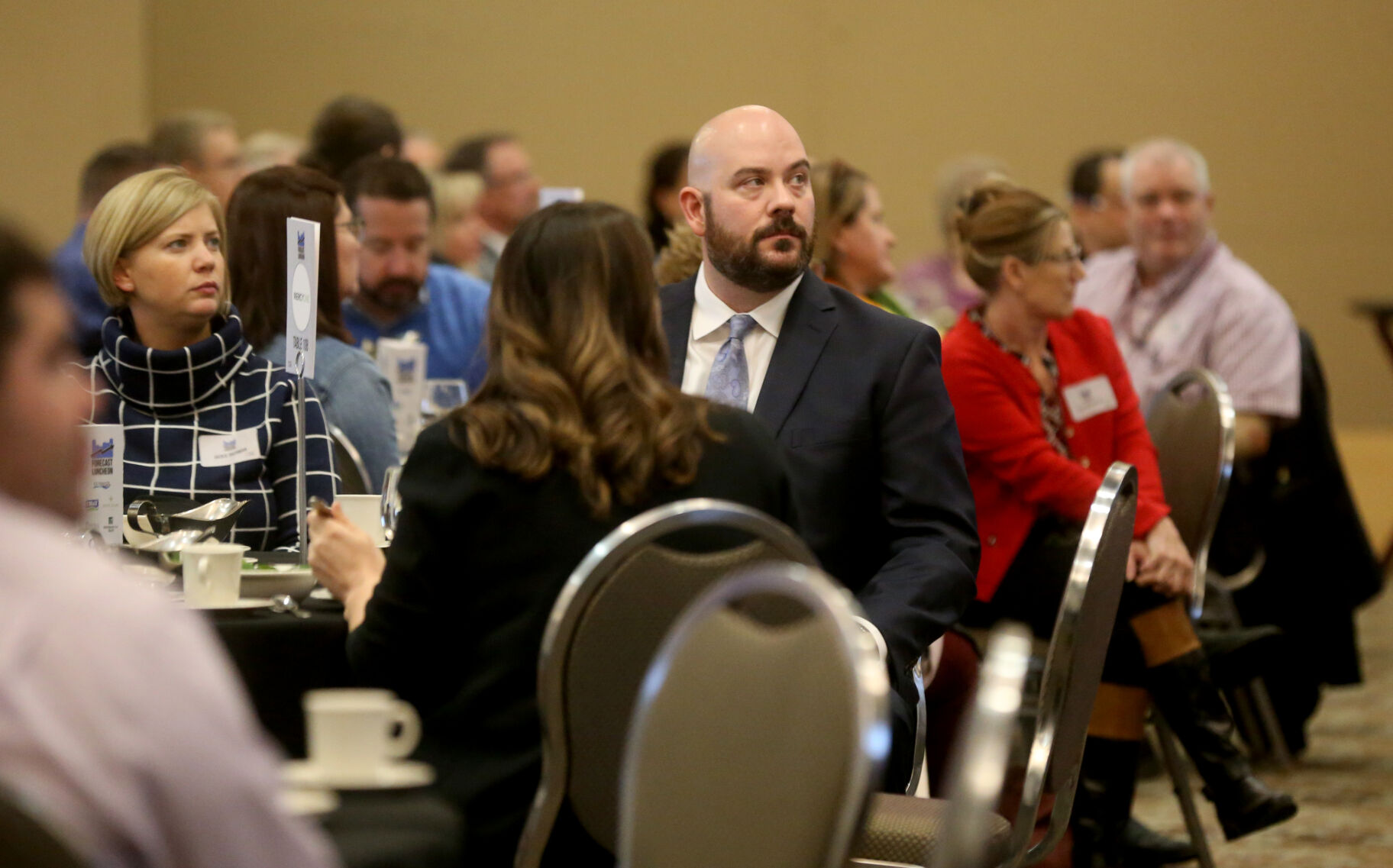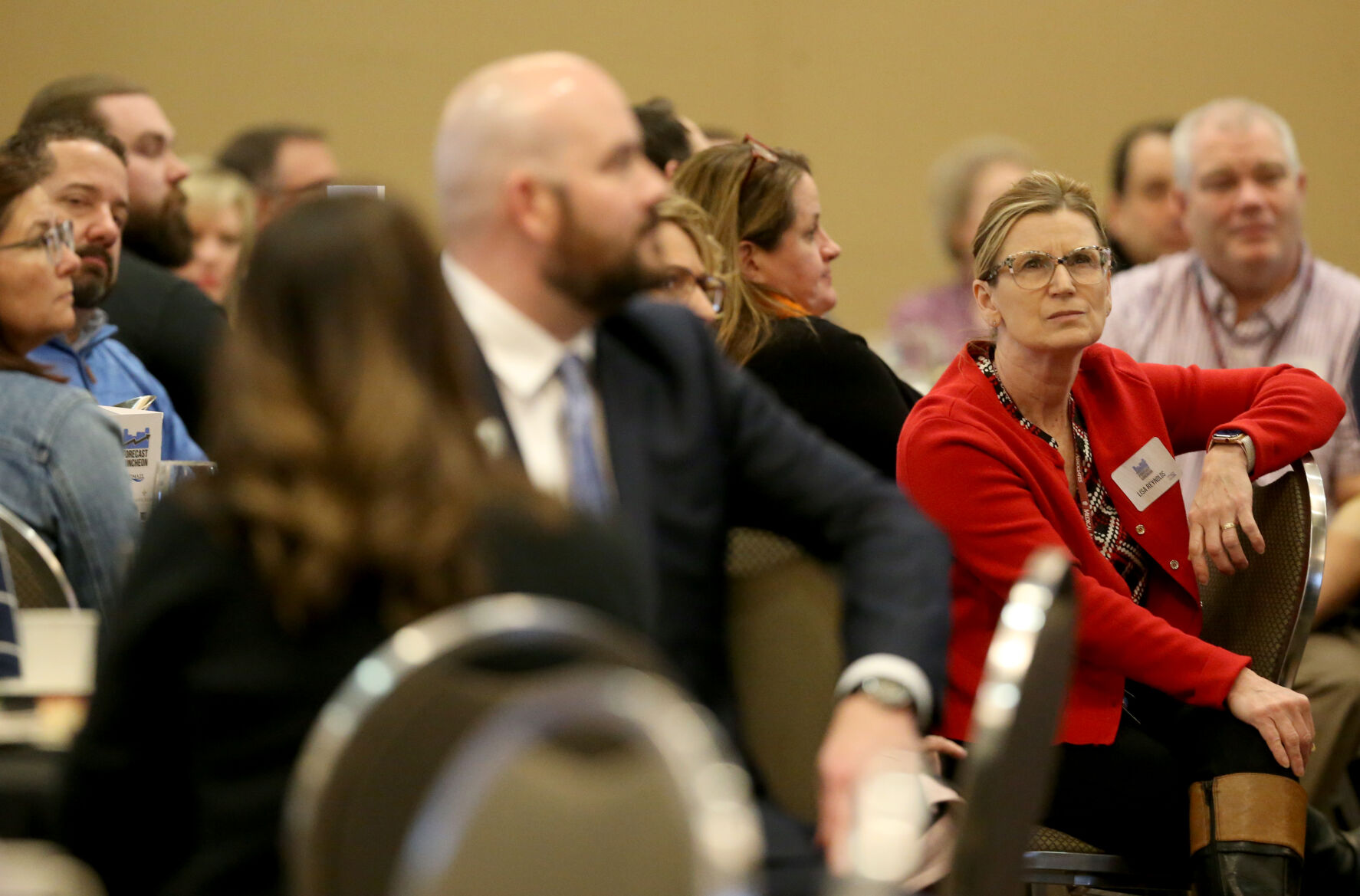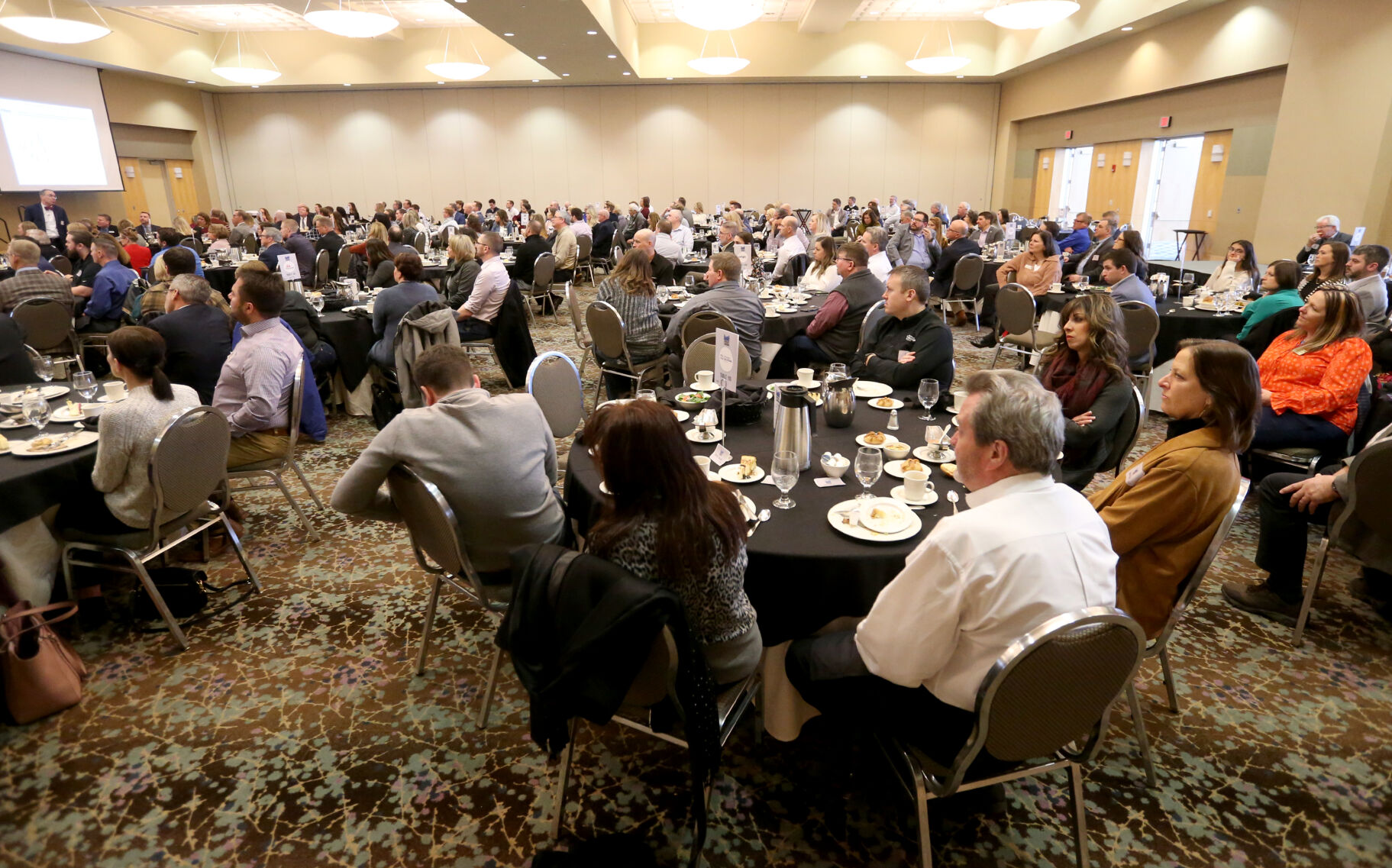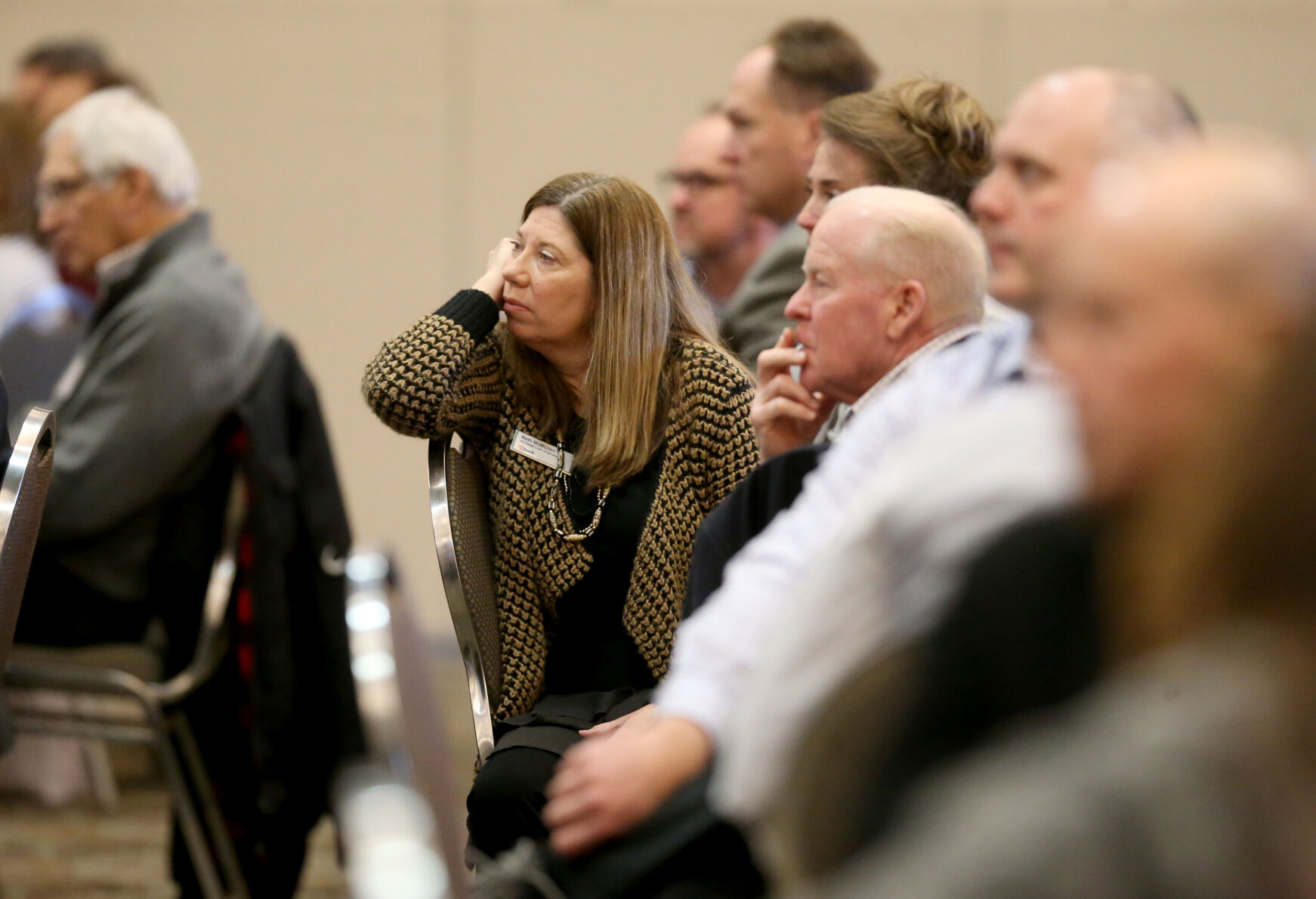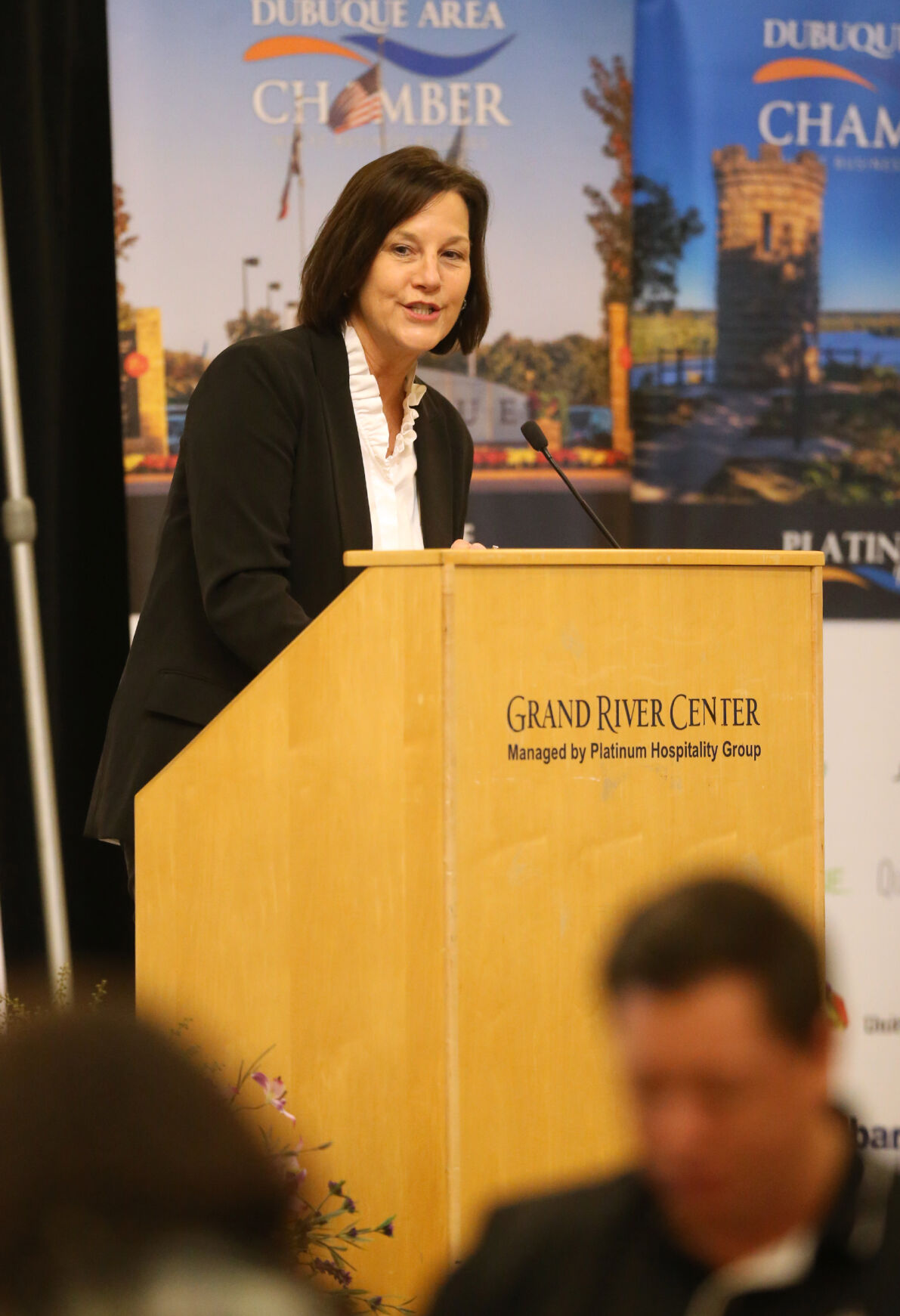An economic expert on Thursday said he expects a recession to affect the country this year, though he does not anticipate that it will be severe or lengthy.
Elliot Eisenberg, a nationally known economist, was the featured speaker at Dubuque Area Chamber of Commerce’s 2023 Forecast Luncheon. About 250 people attended the event at Grand River Center.
Eisenberg spoke at length about the economic signs indicating a recession will happen in the coming months, pointing to the workforce shortage and Federal Reserve policymakers continuing to raise interest rates.
“We are going to have a recession,” he said. “I would bet my left hand that we will have a recession. The recession won’t be bad, but it will be there.”
He said he expects the recession to begin around mid-year, though it could be as early as April.
Signs of a recession already have arrived, Eisenberg said, as stimulus money provided to individuals during the COVID-19 pandemic now has gone away. Now, he said, Americans have an average savings rate of 2.4%, the lowest nationally since 2005.
“It suggests that people can’t keep up with their bills anymore,” he said. “This is not a good sign. If we have a decent economy but the savings rate is plummeting, that makes me a little nervous. … Goods are getting easier to get, and at the same time, people are not buying them. Part of the economy is weakening.”
Eisenberg also said a recession has followed 10 of the 13 times the Federal Reserve has raised interest rates since 1955.
The Federal Reserve voted in December to raise the interest rate to 4.5%, and Eisenberg said he expects that rate to grow to 4.87% in March. He said this is the fastest the rate has gone up since 1981.
Eisenberg also spoke about the workforce struggles affecting the country.
Effects of the COVID-19 pandemic continue to impact the number of available workers, he said, as many people either retired, died, quit their jobs or failed to return to work due to barriers such as child care.
“If in three years you haven’t worked, you aren’t coming back to work,” he said.
The rate of people across the country quitting their jobs is up from before the COVID-19 pandemic, Eisenberg said, and the U.S. job market now has two jobs available for every unemployed person.
“This labor market makes a snare drum look loose and relaxed,” Eisenberg said. “People are quitting their jobs because there are so many jobs.”
Despite these challenges and signs of an impending recession, Eisenberg said he expects that inflation already has peaked at above 7% and will continue to go down. The U.S. Department of Labor reported last week that inflation was at 6.5% for the 12 months ending in December.
Eisenberg also said he expects that a recession would not last long.
“The recession will be over by the end of (2023) or the beginning of (2024),” he said. “That’s the best-case scenario.”
Justine Paradiso, vice president of programs and events for Dubuque Area Chamber of Commerce, said after Eisenberg’s presentation that the information he provided is important for people in all employment sectors.
“Dr. Eisenberg has great thoughts and insights to help us prepare for what’s ahead,” she said. “Whether that information does occur or not, at this point, people now know what to be looking for.”
Paradiso said issues surrounding workforce are a top priority for the Dubuque chamber, and chamber officials continue to work with local business and community leaders, as well as legislators, on how to best help businesses find more employees, such as encouraging local college students to stay in the area.


